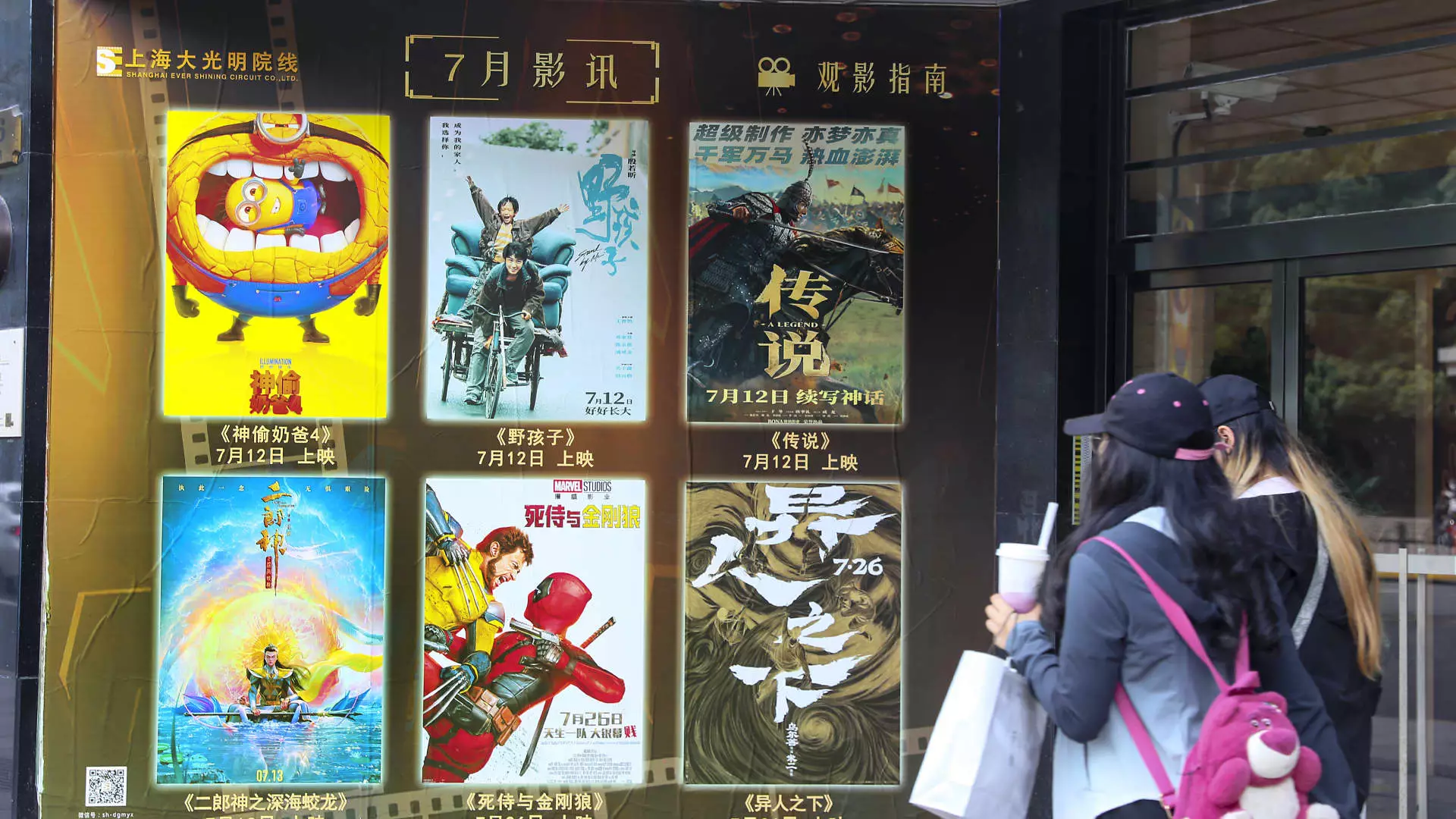The allure of Hollywood has always rested on its ability to capture the global imagination. Once considered a reliable revenue fountain, particularly from the ever-growing Chinese market, the industry is now feeling the sting of political maneuvering and economic uncertainty. President Donald Trump’s trade war with China has sent shockwaves through Tinseltown, leading to a significant reassessment of Hollywood’s strategies and expectations. The escalation of tariffs on Chinese imports has not only threatened American goods and services but has also had severe repercussions for an industry that once thrived on cross-cultural cinematic exchange.
While the echoes of past triumphs resonate through the halls of major studios, the current reality presents a grim picture. Hollywood’s historical dependence on the Chinese box office as a safety net is quickly unraveling. Once the envy of the world, this market has now become hostile terrain, with American films facing unprecedented challenges. The recent retaliatory measures from China—including the restriction of Hollywood films in its theaters—serves as an alarming reminder of how geopolitics can shape artistic endeavors.
The Decline of the Hollywood Blockbuster
The decline of ticket sales for U.S. films in China is not merely a blip on the radar; it’s a harbinger of a larger systemic issue. Commentary from industry insiders, such as Ann Sarnoff, underscores this daunting transition. As the Chinese film industry expands and cultivates its own audience, U.S. studios are left grappling with the consequences of reliance on a market that is now favoring domestic productions. The expiration of the U.S.-China Film Agreement in 2017 exacerbated an already volatile situation, leading to a steep descent for Hollywood films that once delivered high revenue returns.
In stark contrast to the booming growth of Chinese films, the numbers tell a sobering tale. Disney and Warner Bros. Discovery, two cornerstones of the American film industry, saw their stock values plummet following news of increased tariffs, highlighting just how interconnected global trade policies are with Hollywood’s financial health. Movies that once dripped with potential now face near-silence from a market that once cheered their every release.
Adapting to a New Normal
The confluence of factors at play demands a strategic pivot for Hollywood. The industry’s focus must turn from merely exporting product to engaging in genuine cultural dialogue. Filmmakers and studios must reconsider their narratives to appeal to a rapidly changing landscape defined by consumer preferences rather than market dominance. One cannot help but wonder if Hollywood, in its quest for a global audience, has overlooked local narratives that resonate with domestic viewers both in America and abroad.
Moreover, the recent successes of home-grown films—like the groundbreaking “Ne Zha 2” which shattered box office records—illustrate a shift in audience priorities. The sophisticated technology, storytelling prowess, and cultural resonance of Chinese films are carving out a new paradigm that American studios must reckon with. Rather than viewing the Chinese market as an adversary, Hollywood could find ways to collaborate, thus enriching the storytelling arts on both sides of the Pacific.
The Economic Implications of a Trade War
What underpins this evolving landscape is a dire economic reality. As U.S.-China relations remain strained, Hollywood’s position is precarious. The weakened dollar may present an opportunity for international box office returns; however, the increasing costs of production and distribution present hurdles that cannot be ignored. Executives are left with more questions than answers as the stock market gyrates amid shifting tariffs and trade policies.
It’s evident that Hollywood’s longstanding reliance on international markets needs a radical overhaul. The ramifications of Trump’s trade policies extend far beyond immediate financial losses; they threaten to alter the very foundations of creative expression in one of the world’s most influential industries. Hollywood cannot afford to be an unwilling pawn in a geopolitical chess game; adaptation and innovation must become its guiding principles as it navigates this tumultuous new reality.
As American filmmakers face an uncertain future, one thing is clear: Hollywood’s next chapter will demand resilience, adaptability, and a renewed commitment to engaging both domestic and international audiences in meaningful ways.

Leave a Reply